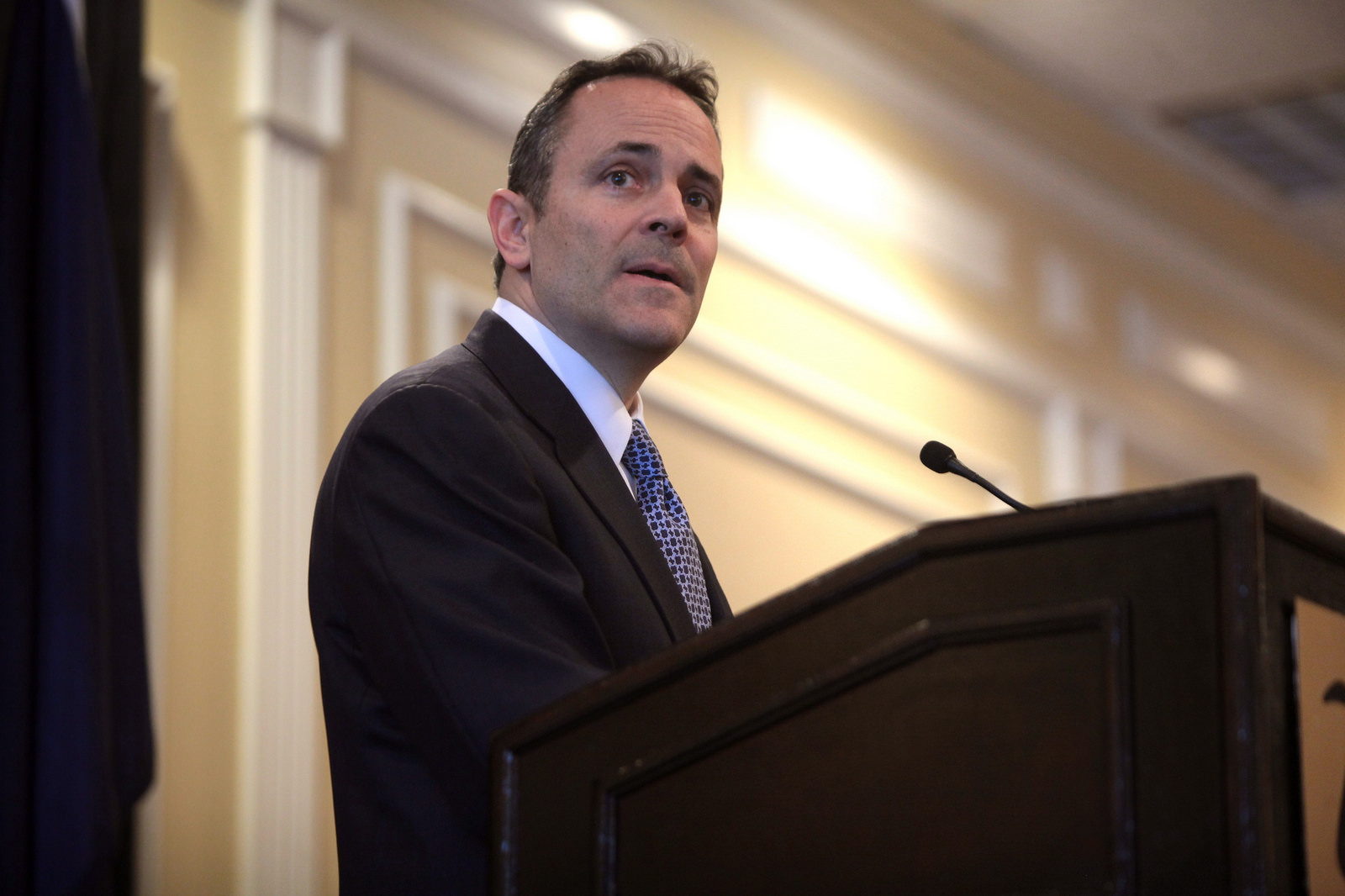By Matthew Pertz, Opinion Editor
The Affordable Care Act, also known by its colloquial name Obamacare, is one of the most misinterpreted laws in the United States, and many of those misunderstandings have affected very powerful people, including Ky. Gov. Matt Bevin.
Before the ACA took effect in 2014, Medicaid, the government program that provides healthcare to the poor, was only federally guaranteed to those who were pregnant, caring for dependent children, severely disabled, or elderly. However, the new law expanded the requirements to include every American who makes under 138% of the poverty line, equating to $16,394.40 for an individual in 2016 (the line grows for each member of one’s family).
This was a generally heralded provision of the Affordable Care Act. Healthcare is either astronomically expensive or completely unavailable to the impoverished, so expanding Medicaid is the only way that the lower class can afford medical care, and Kentucky expanded Medicaid through a widely-renowned program called Kynect.
However, Gov. Bevin has decided that helping the 400,000 people who never had healthcare before Kynect is too expensive a task for his administration to continue, stating “Our state is financially in trouble and cannot afford to continue down the current Medicaid path that we are on.
“We have an opportunity to develop a transformational program that improves health outcomes, encourages personal responsibility and does both in a fiscally sustainable manner. This is exactly what we intend to do.”
Gov. Bevin, you missed the point. Your state has already developed a transformative program that improves health outcomes in a fiscally sustainable manner.
Kentucky has one of the highest needs for healthcare in the nation. The Bluegrass State boasts both the highest cancer death rate (211 deaths per 100,000 people, according to the CDC) and the highest preventable hospitalization rate (85.1 per 1,000 people, according to the United Health Foundation).
Meanwhile, Kentucky also lags behind economically. The state has the fifth poorest population (average income of $23,462 per capita, according to the US Census Bureau) and eleventh highest unemployment rate (5.7 percent, according to the Bureau of Labor Statistics).
Kynect provided healthcare to over 9.5 million previously uninsured people in its first six months, and Kentucky proved to be the biggest overall gain with a near 50 percent drop in uninsured people (from 14.3 percent to 8.5 percent, according to the U.S Census Bureau).
In addition, Bevin’s notion that Medicaid expansion is unsustainable is a fallacy. Kynect was funded by $330 million from the federal government, an investment that was entirely recouped thanks to a one percent transaction fee on all Kynect transactions. That money is goes from beneficial to suddenly wasted if the marketplace is dismantled.
As for Medicaid itself, that venture is sustained by $3.7 billion in state money, which in turn purchases over $21 billion in federal Medicaid. Paying 21 cents on the dollar to give healthcare to the poor sounds like a bargain on all accounts.
The state launched Benefind on Feb. 29 as a cheaper, more efficient way to healthcare and other benefits from Washington. This system might end up being a alternative to Kynect, but it’s far more expensive in the short term for two reasons: the state is spending Kentucky taxpayers’ money to build the website as opposed to the federal grants that paid for Kynect, and the any healthcare bought on the national exchange is subject to a 3.5 percent transaction fee, as opposed to the one percent from Kynect.
Bevin touted himself as a job creator on the campaign trail, but he’s neglecting Kynect’s tangible jobs that would be lost should he demolish the program. Statistics from the Federal Reserve Bank of Saint Louis indicate that the program generated 13,000 jobs in just two years, while overall the state lost nearly 30,000 jobs in the same timeframe.
Perhaps the faithful Baptist Bevin forgot Luke 5:31: “Jesus answered them, ‘It is not the healthy who need a doctor, but the sick.’” Jesus recognized two millennia ago that it’s not only the wealthy who can afford doctors that need doctors, but all the sick, including those who can’t pay for it themselves.
Doing the right thing shouldn’t be dependent on a budget or political process. Having access to healthcare is a right for all, not a privilege for the wealthy, and Gov. Bevin needs to change his plans before the poverty-stricken in our state are set back even further.


